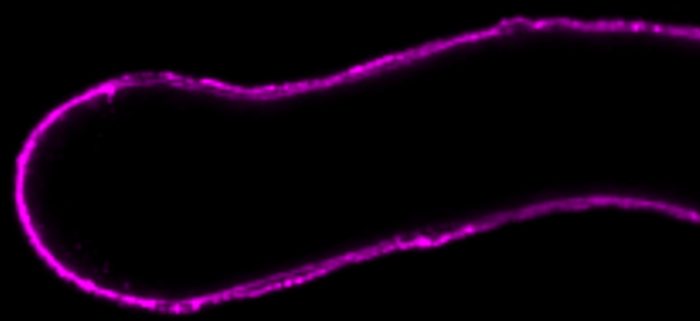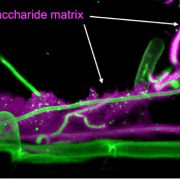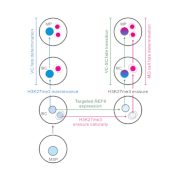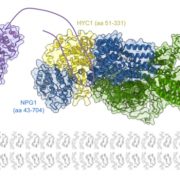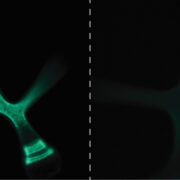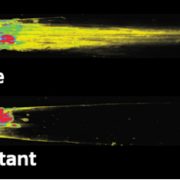Maintaining pollen tube integrity in maize
By Liang-Zi Zhou and Thomas Dresselhaus
Background: As sperm cell transporting vehicles, pollen tubes of flowering plants grow through the transmitting tissues of the style to delivery immobile sperm cells for double fertilization and seed production. In maize (Zea mays), pollen tubes grow up to 1 cm per hour through elongated styles (silks) before their sperm cell cargo is released inside ovules. In the model plant Arabidopsis (Arabidopsis thaliana), it has been shown that pollen tube secreted RALF proteins interact with receptor complexes and cell wall proteins to regulate pollen tube integrity during pollen germination and tube growth. Whether the identified mechanisms exist in other flowering plants was not known.
Question: Are the mechanisms that regulate pollen tube integrity evolutionarily conserved among flowering plants? We addressed this question by using maize, as a grass and crop species that has sexual organs with very different morphology from those of Arabidopsis.
Findings: Based on phylogenetic analysis, RALF proteins from maize and Arabidopsis can be classified into different clades. We show that maize Clade IB ZmRALFs are mainly located in the pollen tube cell wall and are required for proper pollen tube growth. ZmRALFs from Clade IB, but not ZmRALFs form Clade III, strongly interact as ligands with cell surface receptor-like kinases, co-receptors, and cell wall proteins from both maize and Arabidopsis. The strongest binding affinity was observed with LRX/PEX cell wall proteins. Mis-regulation of Clade IB RALFS affected pectin patterning of the pollen tube cell wall. In summary, our findings indicate that Clade IB RALF signaling mechanisms are partly conserved between both species, and that RALF proteins play a dual role as cell wall component and extracellular sensors in regulating cell wall integrity.
Next steps: It is now important to identify and study components of RALF downstream signaling and to establish the dual role of RALF interaction/competition between cell wall proteins and cell surface receptors. Moreover, the function of pollen tube-specific RALFs of Clade III that are not located to the cell wall remains to be elucidated to better unravel the multiple roles of this protein family during pollen tube growth.
Reference:
Liang-Zi Zhou, Lele Wang, Xia Chen, Zengxiang Ge, Julia Mergner, Xingli Li, Bernhard Küster, Gernot Längst, Li-Jia Qu and Thomas Dresselhaus. (2023). The RALF signaling pathway regulates cell wall integrity during pollen tube growth in maize. https://doi.org/10.1093/plcell/koad324


